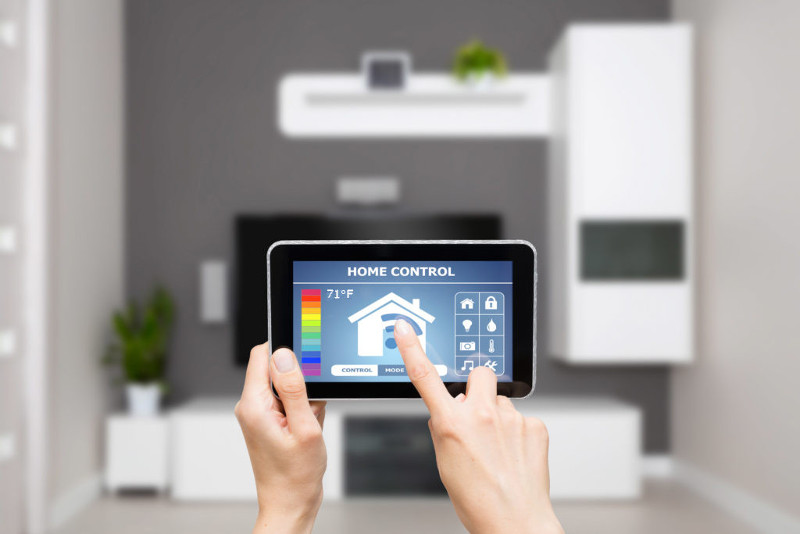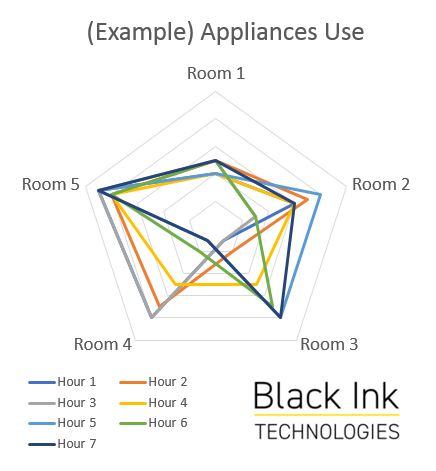The Future of Smart Homes and the Internet of Things
by Black Ink Team

Millions of people live in smart homes already. What makes them “smart” is the host of devices they have that automate, track, and control different aspects of their environment. The list of smart devices that you can buy for your home is now vast. This means that, through an app on your phone, you can now control nearly every single thing in your house - from your kid’s nightlight to the lock on your front door.
The Internet of Things refers to the network of all physical devices (appliances, vehicles, etc.) connected to the Internet. Anything that transmits data back to its manufacturer is a part of the Internet of Things. The idea has been around since as early as 1982, when papers were written about a new soda machine that was installed at Carnegie Mellon. It was the first Internet-connected appliance, and it could sense whether its drinks were cold.
According to BI Intelligence, there will be “more than 55 billion IoT devices by 2025, up from about 9 billion in 2017.” In other words the number of devices on the Internet of Things currently outnumbers the number of people on the Internet, and is growing rapidly.
Smart home appliances are included in the devices that make up the Internet of Things, and are very close if not the closest in proximity to our daily lives. As they rise in popularity and get upgraded, the amount of information they can collect about us will increase exponentially.
The benefits that this will provide are too huge to ignore. First and foremost, less energy will be consumed. Examples of why this will be the case are lights shutting off automatically and air conditioners not running when people aren’t home.
Secondly, people’s lives will be made easier. Companies will be able to study how people actually use their products. So, when they go to design newer generations of their products, they will be more informed as to how to make them more convenient to use.

Thirdly, products will be safer. Thanks to smart homes and the Internet of Things, manufacturers of appliances will have lots more data to comb over. This will come in handy when something goes wrong with one of their products. They will be able to make the likelihood for that problem cropping up again go down.
Expanding the Internet of Things does carry a risk. According to a report made by the Atlantic Council think tank, “consumer concern about hacking is the most serious barrier to adoption.” The more devices there are connected to a network, the more ways there are for hackers to get in. Smart appliances sometimes have weak security since their chipsets are small, so adding a bunch of them to a network can be dangerous. Hackers could use smart appliances as "backdoors" into consumers other devices, such as desktops and laptops.
Furthermore, hackers may hijack smart appliances and use them for other attacks. This has already happened. In 2016, hackers compromised tens of millions of smart home devices and used them in a DDoS attack. (A DDoS attack is when a multitude of devices direct traffic at a particular website, causing its servers to overload). This attack temporarily brought down several popular websites including Spotify and Twitter.
The risk that they might be giving hackers tools with which to do harm shouldn’t stop manufacturers from adding interconnectivity features to their appliances. Many companies exist already who are working on ways to shore up security on smart home appliances. Also, even if further attacks do occur, the benefits mentioned above would cause the net effect that smart homes and the Internet Of Things have on society to be a positive one.
Sources:
Peter Newman for Business Insider, “How the IoT is evolving to reach the mainstream with businesses and consumers” – 2/26/2018
Greg Lindsay/Beau Woods/Joshua Corman for Atlantic Council, “Smart Homes and the Internet of Things” – 3/16
